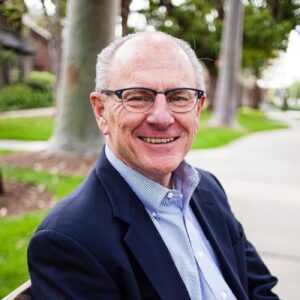Monthly Feature: Researcher’s Corner
Welcome back to the new collaboration with the NODCC and its key researchers from around the globe. Each month we will introduce you to important research being conducted on the topic of DCCs through the specific research of friends of the NODCC. This month’s featured researcher is Dr. Warren S. Brown, Professor of Psychology at the Travis Institute and founding and current board member at the NODCC.
January 2024 Featured Researcher: Dr. Warren S. Brown, PhD
Compiled and Edited by Miriam Bernard

For the last 25+ years, Dr. Brown and his students at the Travis Institute have focused research on persons with ACC who function generally within the normal range. They study individuals with complete or partial ACC who have a Full-Scale Intelligence Quotient at or above 80, and who have the sensory-motor capacities to participate in testing. They typically study older adolescents and adults, but a few of their studies have involved older children.
The particular type of research Dr. Brown’s team conducts allows their team to ask research questions about what presence or absence of a corpus callosum contributes to human cognitive and social functioning. They focus on answering the following questions:
- What are the cognitive characteristics of high-functioning individuals with ACC?
- What are the psychological and social characteristics of high-functioning individuals with ACC?
- What is it specifically about absence of the corpus callosum that can account for these unique characteristics?
Because persons vary significantly in their cognitive and psychosocial characteristics, this research is helpful to families to know what aspects the functioning of their family member with ACC might be specifically due to ACC, and what parts are just “them”. Dr. Brown states, “For a family with a younger child with ACC, it is helpful to know what to expect during child development, and as an adolescent and adult. Having a clearer idea of the typical cognitive and social strengths and weaknesses of persons with ACC can be helpful in deciding how a person with ACC might engage life most successfully.”
Dr. Brown and team are currently in the midst of data collection in four online studies involving: (1) Judgments of emotion in faces, (2) perception and preferences of visual art, (3) perception and appreciation of music, and (4) problem-solving involving moral dilemmas. Participants would make appreciative judgments regarding emotions in faces, visual art, or musical passages, and judge descriptions of behavioral scenarios regarding whether the action described is correct or not. If you or someone you know with ACC might be interested in participating, send an email indicating your interest to neuropsych5@fuller.edu.
Over the last 25 years, the results of Dr. Brown’s research has begun to assemble a robust basic description of the cognitive and psychosocial characteristics of persons with ACC. The NODCC would not be the comprehensive research-based organization it is today without the early contributions and continued commitment of Dr. Warren Brown, and we are so grateful for all the ways he and his team continue to shed light on ACC through research and investigation.

